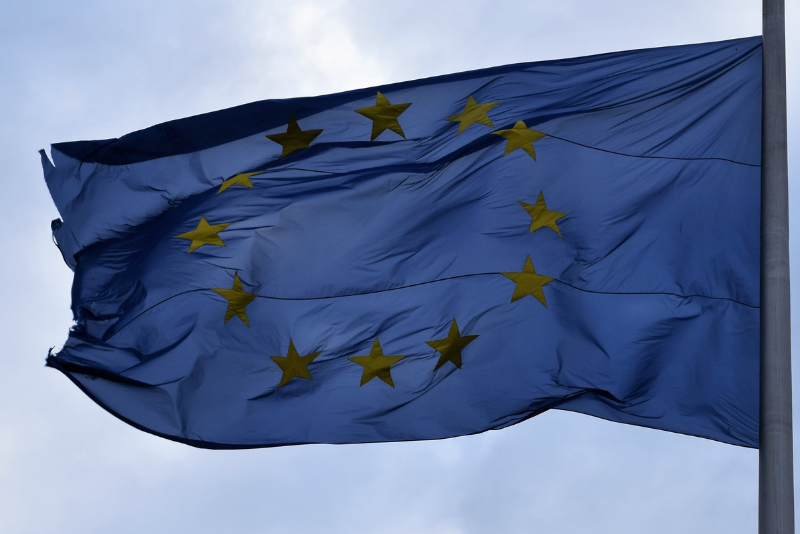EU Whistleblower Directive - Deadline Is Getting Closer!
What does your company need to know about the European Whistleblowing Directive?
Did you know that if you are a company with over 250 employees in the European Union, the EU Whistleblowing Directive applies to you, and you need to be compliant by December 2021?
The EU Whistleblower Directive was passed in December 2019 and it's purpose is to provide and promote a safe and secure way for people to voice concerns and speak up about unethical behaviour or misconduct in their workplace.
Any company in the EU with more than 250 employees will need to be compliant with the Directive by the end of this year. Each of the 27 member states will need to transcribe the directives into their own national law. To note, the Directive impacts thousands of companies across the EU with more than 50 employees. However, it's those with over 250 employees that will need to ensure they are first to comply with the new regulations by the end of the year.
Let's drill down the basic elements of the Directive. The Directive itself (Article 2) lists reporting areas such as breaches related to national security and matters of defense are outside the scope of the Directive. The Directive is also not applicable to the 7 EU Institutions:
- European Council
- Council of the European Union
- European Commission
- European Parliament
- European Court of Justice
- Court of Auditors
- European Ombudsman
- Content of the Directive
Protection to Whistleblowers
Under Article 4 of the Directive a whistleblower is a "worker", as well as “self-employed people, shareholders, trainees and volunteers.” In Article 6 of the Directive, it states that to receive protection, the person reporting a complaint had to have had 'reasonable grounds to believe the information available to him or her at the time was true, and had to report the information through the available reporting channels according to the rules and exceptions established by the Whistleblower Directive.'
Reporting Channels
Reporting channels are organized in a hierarchical type manner for private and public companies and the Directive sets the following reporting channels in this order:
- Internal reporting channels - whistleblowers are first encouraged to file a report through an internal channel. Private companies with at least 50 employees are required to implement a safe and anonymous place for employees to speak up. Once a report has been filed, a receipt, or proof of the report, should be provided within seven days with a response to the report within three months. This internal reporting channel can be internally housed, or can be provided by a third-party. If the whistleblower, for any reason, feels that an internal reporting channel 'does not function properly', or they aren't seeing the result they need, they can then go to an external reporting channel.
- External reporting channels - whistleblowers can file a report via an external reporting channel if they feel they have not received a proper response from the internal reporting channels in the indicated time frame set out by the Directive. The EU member states must designate leadership dedicated to responding to and following up with whistleblowers within three months after the report is filed.
- Public disclosure - companies should do all they can to ensure that whistleblowers feel safe and confident enough in the process to file their reports either internally, or externally. Public disclosure is a last resort to a whistleblower who does not feel safe and secure within their own company culture. As well, if a whistleblower feels their concern constitutes an imminent danger to the public, the whistleblower can speak up publicly to disclose their concern, and still qualify for protections under the Whistleblower Directive.
Protection Against Retaliation
Under the Directive, the whistleblower will have certain protection against retaliation, including dismissal or a demotion of their role by their employer. The Directive also ensures that whistleblowers have access to information and advice relating to legal action taken against them - this is provided free. Whistleblowers will also receive free legal aid, financial and psychological support during legal proceedings.
Additional Measures
In 2018 the EU Commission recommended that EU member states do more to expand their protections for whistleblowers, more than the minimum standards set out by the Directive. Member states should also create awareness around the positive role that whistleblowers play when it comes to speaking up, and protecting their company's, coworkers, and workplace culture.
WhistleBlower Security provides global 24/7/365 Ethics Reporting service and offers the most human whistleblower experience in the market. WBS is headquartered in Canada and since 2005 we have been dedicated to safeguarding hundreds of organizations against risk and fraud globally, while promoting and improving ethical work environments. WBS works with public, private and non-profits to augment, support and enhance cultures of integrity, accountability, and transparency.
Contact us to learn more about how your company can prepare for the EU Whistleblower Directive.
Source:
https://peopleintouch.com/speakup-and-the-eu-whistleblowing-directive/?gclid=CjwKCAiA1eKBBhBZEiwAX3gql8Z5GzPrO9qK7i6qFRJNZLAlBr_9_dOykr-RPhRGKpqvjP7lrZvB0BoC2ocQAvD_BwE
https://www.lexology.com/library/detail.aspx?g=f114a693-a3f9-4c31-9363-6e45c77bb4b9

